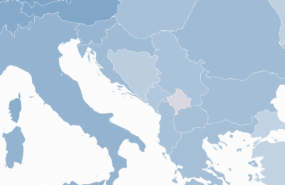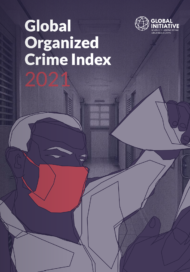Posted on 13 Jan 2022
Illegal logging ranks among the most serious criminal markets in Bulgaria, a multimillion-dollar industry that allegedly involves officials and businesspeople in the country’s highest echelons of power.
Since Bulgaria acceded to membership of the European Union in 2007, the country’s economic situation may have improved, but far from as dramatically as had been hoped. In fact, in 2019, five of the country’s six administrative regions were ranked among the poorest in the EU. One indicator of the very low living standard that still prevails in much of the country is the widespread use of solid fuel for heating.
Solid-fuel heating appliances are more easily accessible and cheaper than other alternatives. About 1 million households in Bulgaria use primarily unprocessed wood biomass for heating.
Besides its detrimental impact on air quality, the use of solid fuel for heating is causing deforestation at alarming rates in the country, and with the market for wood on the rise, the commodity is often logged illegally to satisfy demand nationally and abroad.
According to The Global Initiative Against Transnational Organized Crime’s Global Organized Crime Index 2021, illegal logging ranks among the most serious criminal markets in Bulgaria, contributing to the country’s score of 5.50 in the flora crimes category, which is above the regional average of central and eastern Europe (4.12) and well above the global average for this criminal market (3.88). Between a third and a quarter of all felled trees in the country are part of the black market, and in 2019 alone, the proceeds generated by those involved in illegal logging were estimated to be between US$42 million and US$90 million.
Wood mafia
In 2020, the Bureau for Investigative Reporting and Data (BIRD), a Bulgarian independent media outlet, published an investigation outlining the criminal schemes through which forests in the country are routinely felled. BIRD identified over 200 private companies that overexploited their permitted felling quotas, of which 20 to 30 were felling many times more wood than their permits allowed. According to the investigation, some had identifiable links to political parties and, as a result, were allowed to harvest more wood than others.
The investigation concluded that the illicit logging market in the country is facilitated by the government and, ironically, by the same authorities tasked with protecting the forests. It was found that these may tolerate and permit rule breaking so that private entities with political ties can make a profit while destroying scarce forest resources. In one telling incident, a forest inspector allegedly asked a company on site to provide proof of the wood quantities being hauled, but representatives of the company refused to do so. They were under the escort of a member of parliament’s car.
High-ranking forest officials are also allegedly directly and indirectly involved in the illicit felling, transportation and sale of wood. They are often linked to groups known as the ‘wooden mafia’, which are structured around forest management officials with ties to parliamentary represented parties. In most cases, it is the forest officials who control these groups’ activities and provide protection to the employees of private companies that carry out the felling. Appointments of forest regulators are also allegedly handed out by well-connected and influential businesspeople involved in the logging business. Officials responsible for controlling logging operations may face losing their jobs if a particular company’s interests are threatened.
A common mechanism used by private entities to obtain permits to log is a loophole in the law on the protection of agricultural land that makes provision for local authorities to allow the clearing of land, which enables companies to fell entire forests. Around 10 per cent of the forests in the country are erroneously recorded as fields, meadows or pastures in the national cadastre, which is to the benefit of landowners and private companies, who can make a profit once logging commences. The status of these lands can be changed in order to protect forest land, but procedures are slow.
Looking ahead
In light of the BIRD investigation, it seems likely that influential political and economic interests are at play in the logging sector in Bulgaria – interests that outweigh the negative societal and environmental impacts of this market, such as loss of tax revenue and the damaging consequences of deforestation. This form of environmental crime generates substantial profits for actors in the private sector and, reportedly, the government.
As global levels of deforestation and greenhouse gas emissions surge, reforms are needed to guarantee transparency in the management of forest resources in Bulgaria. Due to the comparably low profile of environmental crime in Europe, as exemplified by the low average scores for these markets in the Global Organized Crime Index, too little attention is paid to environmental crime across Europe, as governments target other criminal markets that are perceived as more threatening.
In Bulgaria, this neglect has been even more prevalent during the COVID-19 pandemic, as Bulgarians have focused on other seemingly more pressing issues, while local non-governmental organizations have neither the resources nor the scope to spearhead a targeted campaign to protect natural resources in the country. Since it is unlikely that civil society in Bulgaria will be a catalyst for change, regional bodies such as the European Commission should tackle the issue and solicit change in the country’s forestry governance.
This analysis is part of the GI-TOC’s series of articles delving into the results of the Global Organized Crime Index. The series explores the Index’s findings and their effects on policymaking, anti-organized crime measures, and analyses from a thematic and regional perspective.



